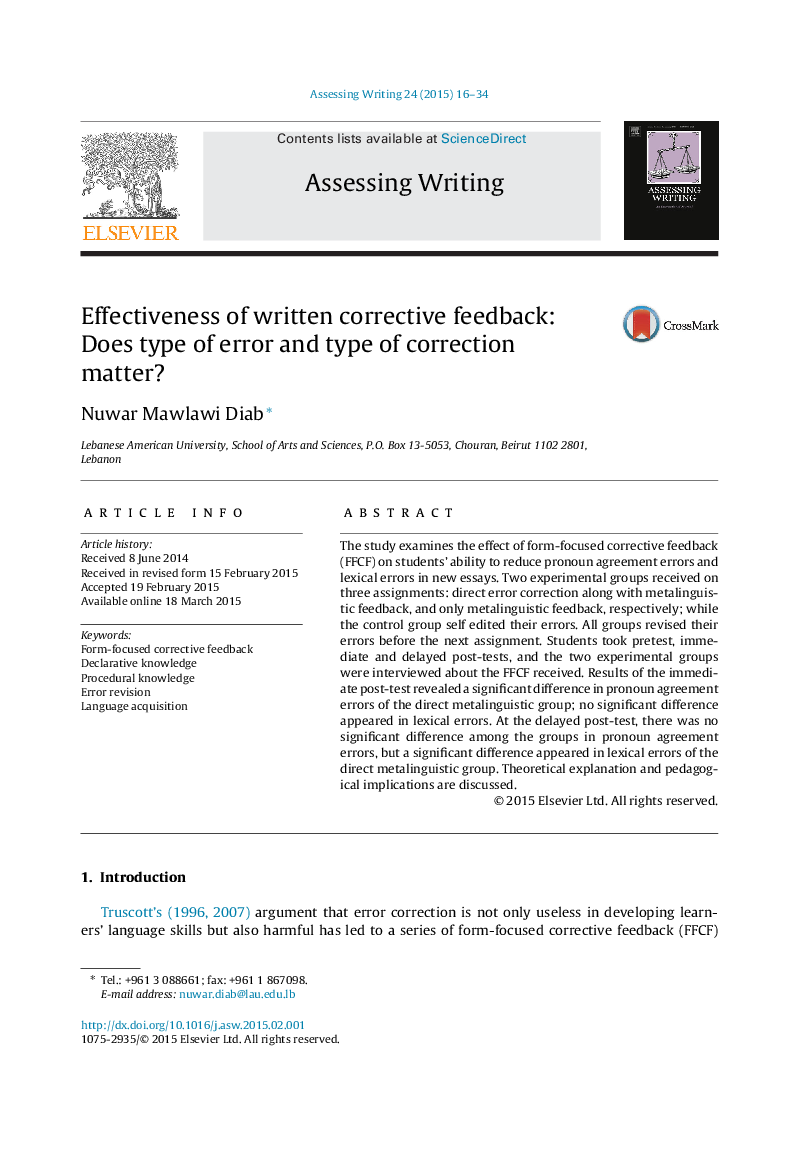| Article ID | Journal | Published Year | Pages | File Type |
|---|---|---|---|---|
| 344255 | Assessing Writing | 2015 | 19 Pages |
•Study examines three types of FFCF: direct and metalinguistic; metalinguistic only; no feedback.•Reports FFCF effects on grammatical (rule-based) errors and non-grammatical (lexical) errors.•Direct and metalinguistic group had fewer pronoun errors on immediate posttest.•Direct and metalinguistic group had fewer lexical errors on delayed post-test.•Interviews with five students provided additional insights.
The study examines the effect of form-focused corrective feedback (FFCF) on students’ ability to reduce pronoun agreement errors and lexical errors in new essays. Two experimental groups received on three assignments: direct error correction along with metalinguistic feedback, and only metalinguistic feedback, respectively; while the control group self edited their errors. All groups revised their errors before the next assignment. Students took pretest, immediate and delayed post-tests, and the two experimental groups were interviewed about the FFCF received. Results of the immediate post-test revealed a significant difference in pronoun agreement errors of the direct metalinguistic group; no significant difference appeared in lexical errors. At the delayed post-test, there was no significant difference among the groups in pronoun agreement errors, but a significant difference appeared in lexical errors of the direct metalinguistic group. Theoretical explanation and pedagogical implications are discussed.
